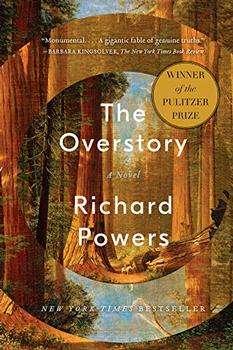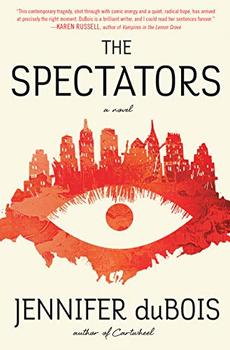Summary | Excerpt | Reviews | Beyond the book | Read-Alikes | Genres & Themes | Author Bio

Long before Occupy Wall Street, birthed from the Great Recession, became the siren call of a protest movement that made "the one percent" a household term, there was the 1999 unrest in Seattle on the eve of the new century to protest the meetings hosted by the World Trade Organization.
This singular event that spiraled out of control, frames Sunil Yapa's arresting debut, which takes its own stand about globalization and its attendant inequities. Close to fifty thousand protesters took to the Seattle streets to grind the activities of one of the world's most influential trade organizations to a halt and Yapa focuses on a smattering of them. The novel's beating heart, as it were, is a father-son relationship — between nineteen-year-old Victor, a biracial teen still finding his place in the world; and Richard, Victor's white stepfather and Seattle police chief. Other police staff include Park, a sergeant who carries the scars of the Oklahoma City bombing, quite literally; and Ju (Julia), a Guatemalan immigrant who is as respected in the department for her no-nonsense attitude as she is sought after for her good looks. Protesters include John Henry, a factory line worker with many years under his belt; and his girlfriend Kirstine, who is determined to make a difference even as she is haunted by a criminal past. The story of Charles Wickramasinghe unwinds on a parallel track, a trade minister from Sri Lanka who is on a special make-or-break mission to get his country entry into the WTO.
It takes talent and a generous dose of bravery to peg an entire narrative arc on just one day, however eventful it may be, and Yapa escapes claustrophobia by zooming in and out of each character's backstory and then connecting the dots to yield a larger breathtaking picture. The tight prose packs a punch with carefully calibrated words, and delivers without derailing the narrative. Most impressive is the novel's tempo — as Victor first flirts at the periphery of the action ("the sound of the chanting crowd was a distant buzzing – fifty thousand desperate flies knocking against fifty thousand closed windows.") and eventually becomes the red-hot pulsing center of it – the novel's pace, too, dials up ever so slowly. You can feel the emotions come to a boil and converge to action and then, toward the end, you sense the ripple effects created as the crowds begin to scatter. It is not just the city that burns for a while, human egos smoulder for much longer. This is especially evidenced by the Sri Lankan minister's gradual epiphanies as he somehow manages to break through the crowds and meet an old British colleague only to have his dreams shattered and reality deliver a cruel blow.
If, at first, the trope of the father and son being on either side of the proverbial fence seems a tad clichéd, it is somewhat tamped down by the complexities of their stories and the emotional (but never melodramatic) baggage they each carry. Yapa, who has traveled and lived around the world including in China, India, Greece, Guatemala, and Chile among other places, knows what he talks about here. He brings a global perspective to the table and reminds us that when it comes to world economics, there is no "us versus them." We're all on one side of the fence in some way or the other. And the evil juggernaut on the other side? Money. It is money that grants Americans the luxury and the power to do something about the injustices in the world, they are born with the ability to change the world, Yapa says, or at least Americans can afford righteous self-indignation.
"What do you possibly have to offer other than warmed-over wage slaves," asks an English diplomat of Wickramasinghe when he makes his case for Sri Lanka's entry into the WTO. Yapa's brilliance lies in showing that the power plays inside the corridors of power are not a radical departure from what went down on one November day in the streets of Seattle in 1999. At the end of it all, the imperialists of the old world order are still in power. They're just wearing a new cloak of disguise.
![]() This review was originally published in The BookBrowse Review in February 2016, and has been updated for the
November 2016 edition.
Click here to go to this issue.
This review was originally published in The BookBrowse Review in February 2016, and has been updated for the
November 2016 edition.
Click here to go to this issue.

If you liked Your Heart Is a Muscle the Size of a Fist, try these:

by Richard Powers
Published 2019
"The best novel ever written about trees, and really just one of the best novels, period."
—Ann Patchett

by Jennifer duBois
Published 2019
A shocking crime triggers a media firestorm for a controversial talk show host in this provocative novel - a story of redemption, a nostalgic portrait of New York City, and a searing indictment of our culture of spectacle.
Your guide toexceptional books
BookBrowse seeks out and recommends the best in contemporary fiction and nonfiction—books that not only engage and entertain but also deepen our understanding of ourselves and the world around us.